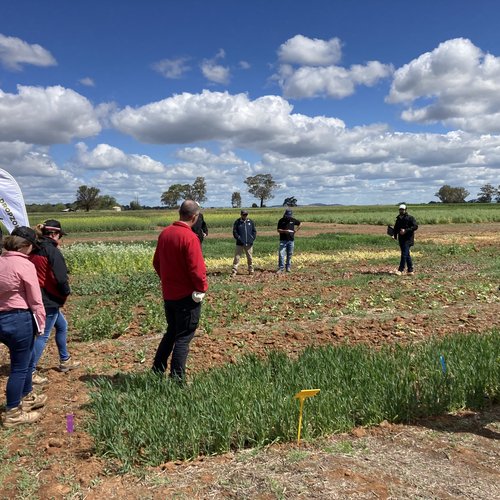Genetics will play a critical role in making Australia’s beef and dairy industries more environmentally sustainable and profitable, a major conference has been told.
The GA 2024 Today, Tomorrow and Beyond conference hosted by Genetics Australia in Geelong on March 18-19 featured national and international speakers and farmers discussing emerging developments in the dairy and beef sectors.
The conference highlighted the success of the Australian genetics industry and its growing reputation on the international scene.
GA chief executive Anthony Shelly said the conference reflected on the great achievements made by the Australian genetics industry over recent decades while also looking to the future at opportunities that would make the industries more sustainable and profitable.
“We all want to make sure the cow of the future is well managed, healthy and delivers on the things farmers and the people using our ends products want, especially in the welfare and sustainable spaces,” Mr Shelly says.
“The conference looked at the next level of innovation and what can be done by genetics and new technologies such as gene editing to accelerate change and deliver big returns for our planet and our people.
“We need to adopt and adjust to ensure our animals are more feed efficient, productive, methane efficient and have improved heat tolerance. These developments will be better for our animals, our farmers and our planet,” he added.
The conference highlighted advances in beef and dairy, sexed semen, sustainability and heat tolerance traits among other developments.
In a presentation on the next genetic frontier, director of PEAK Genetics, Michael Schmitt, told the conference there are sustainable solutions to every people, profit and planet challenge facing industry.
“New technologies aren’t magic and can’t do everything, but tools exist to improve sustainability at the cow and farm level and advancements could accelerate that improvement and develop the cow of the future that addresses what consumers want,” he says.
Mr Schmitt says the connection between PEAK Genetics and Genetics Australia through GA’s joint venture with The URUS Group would help build grazing genetics around the world.
DataGene chief executive Matt Shaffer told the conference Australia now performs well above the international average in genetic advancement and its investments are providing huge returns to dairy farmers.
Independent work commissioned by Dairy Australia and DataGene shows DataGene will contribute $980 million to the industry over the next 30 years, an exceptional return on investment with a benefit-cost ratio of 15.8 to 1.
“In the first seven years of DataGene, Dairy Australia invested $19 million and that has delivered $331 million in outcomes, a benefit-cost of 17.9 to 1,” Mr Shaffer says.
“We need to stop looking at our navel saying the rest of the world does a better job than we do, we do a fantastic job and it’s worth celebrating.”
The conference was the first of its type hosted by Genetics Australia and covered IVF systems, reduced emission feeding strategies, sexed semen, unlocking the World Angus Evaluation, the return on investment from 40 years of genetic improvement, the next genetic frontiers, the role of genetic improvement in creating greater integration between dairy and beef, and the importance of estrus intensity.
It is intended to hold the conference biennially.




